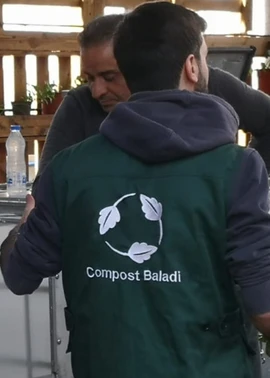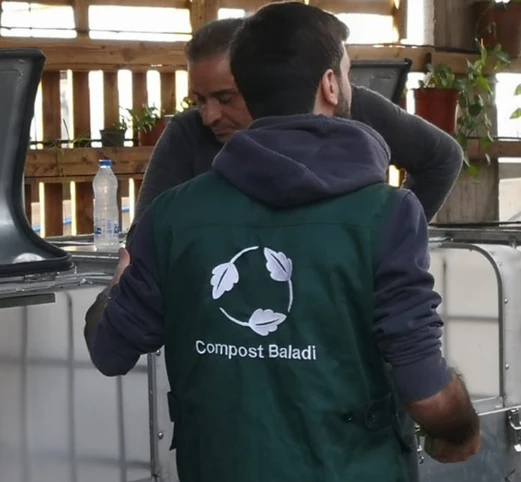Waste management is a contentious issue in Lebanon, an issue beginning back in 2015 when the government closed its biggest landfill (1). Since then the issue has persisted, even grown, despite the country spending almost 10 times more than its neighbours in Jordan and Tunisia (2). With Antoine, the Compost Baladi's founder, Marc has set out to alleviate the burden and negative environmental and health consequences of an under-attended aspect of the challenge, organic waste. They launched the enterprise to provide products and services that promote the local recycling of solid and liquid bio-wastes in households, restaurants, academic institutions, commercial establishments, municipalities, non-profit organizations, and refugee settlements.
Earth Cube is a novel and innovative solution which sustainably composts food waste at the source for approximately 30 beneficiaries, producing an environmentally friendly alternative to chemical fertiliser. This means that the solution to the issue also generates a profit-making product that initially incentivised the use of the solution. To scale its impact, the business structure changed so that Compost Baladi would use the solutions itself, operate them directly, and generate revenue from the compost. It secured a contract to install 12 composting stations, followed by three larger facilities the following year. Other impacts arising from the organisation's work have been on an education level. The team is working to change the stigma around food waste and odour. They have also provided training on bio-waste management to more than 3,000 people. Another avenue of impact has been job creation in rural areas. Through the solutions themselves, the compost produced, and the education work, Compost Baladi is tackling the issue at all stages of the solution.
Moving forward, the organisation is seeking foreign investment and revenue, developing a model to operate outside Lebanon. They are also developing a new technology to introduce in the coming years, a 'smart bin' through which waste can be monitored to identify sources of contaminations and improve biowaste management in more developed countries.
Contributor

